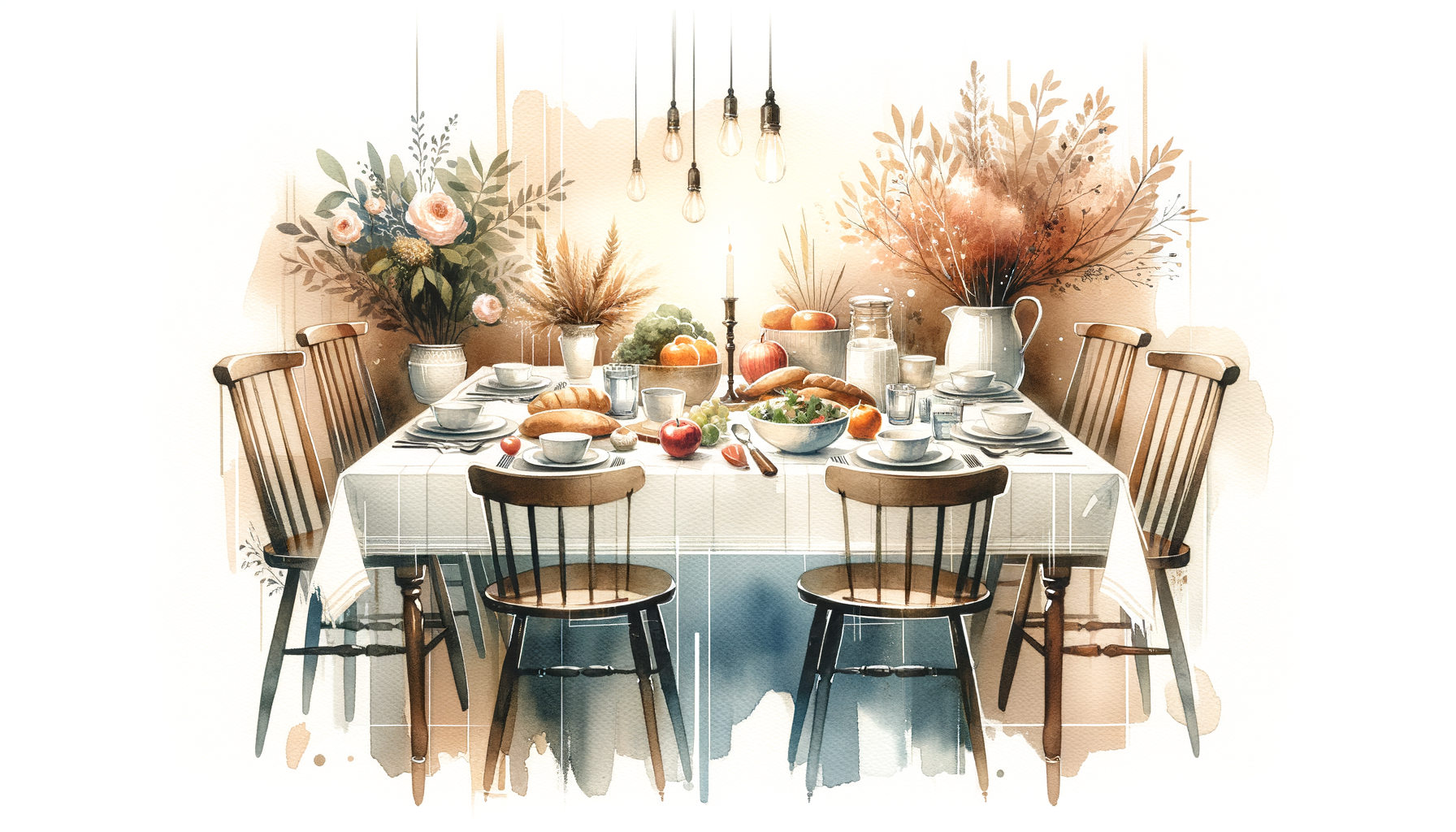"Tell me what you eat, and I will tell you who you are," Brillat-Savarin famously said, although I would argue he missed something crucial: tell me how your family argues over dinner, and I’ll tell you who you’ll fall in love with. For me, growing up in a Greek family of spirited restaurateurs, every meal was a symposium. Not the Pinterest-perfect kind with charcuterie boards and sparkling elderflower spritzers—no, this was a chaos of clinking plates, interrupted train-of-thoughts, and impassioned debates on topics ranging from the Ottoman influence on spanakopita to the true meaning of filotimo (a concept so layered it might be our secret weapon against relationship misunderstandings). Somewhere between the tzatziki bowl and my uncle loudly declaring Plato was underrated, I learned most of what I know about love, life, and timing—especially timing.
The Soundtrack of Love: “Can You Pass the Breadbasket?”
Family meals in my household were never simple. Each plate was an archaeological dig into tradition. The olive oil? Pressed in a family grove. The grape leaves? Harvested by my great-aunt as she casually dropped unsolicited relationship advice. Around that table, I watched my parents’ marriage thrive, not in the quiet “Instagram-perfect” way but in the “I’ll argue with you over how much lemon goes in the avgolemono soup, but I’ll still eat it with a smile” way.
They taught me that love isn’t about never disagreeing—it’s about knowing when to reach across the table to refill someone’s water glass after a heated debate. (This has translated seamlessly into modern romance for me: Do you leave enough room for someone else to win an argument without feeling like they’ve lost?)
Practical Insight? Relationships aren’t built on flawless compatibility. They’re built on honest exchanges. Can you argue passionately but kindly, like two chefs adjusting a recipe? And can you, for the sake of peace, graciously admit the original recipe might’ve been better? My father claims that the best marriages are like baking bread: one kneads the dough, the other lets it rest. I think he's right.
The Grandmother Rule: Mastering the Art of Simplicity
Every Greek family has a matriarch, and yiayia was ours. She was small, wiry, and could out-stubborn a mountain goat. Her wisdom was a smorgasbord of simple truths packaged as parables. “If you don’t know what someone loves to eat, you don’t know them,” she’d say, her hands deftly folding phyllo dough. I didn’t think much of it at the time, but the older I get, the more I realize she wasn’t just dropping culinary knowledge—she was talking about paying attention to the details that matter in love.
It’s not about literal tastes (though there’s wisdom in checking whether someone’s idea of dinner includes anchovies). It’s about taking notice. Does someone need care and affection when stressed, or do they need space? Did they tell you they prefer letters over texts a year ago, and have you been texting anyway? Yiayia always said love was in the details—and those details are what separate a relationship that sizzles like saganaki (look it up; trust me, it’s worth it) from one that simply fizzles.
Practical Insight? Practice Grandmother-Level Listening: Pay attention. Not just the flowers someone says they like on Valentine’s Day, but the way their voice shifts when they talk about their dreams—or their Monday. Taking someone seriously, as yiayia would remind you, is sexier than any swipe-right intro.
The Zorba Effect: Love as Controlled Chaos
Kazantzakis, one of my favorite Greek authors, wrote his most famous character, Zorba, as the human embodiment of joyful chaos. My uncle, in his slightly drunk musings over ouzo (as tradition dictates), often claimed we all need a bit of Zorba energy in our hearts. And, honestly? He’s not wrong when it comes to love.
Love isn’t always neat and tidy. It’s badly timed compliments. Or showing up to someone’s dinner party where you accidentally offend their friend by mispronouncing a French wine while trying too hard to impress. It's everything my family taught me about joy lying in imperfection. Growing up, my home was full of frayed tablecloths, mismatched glasses, and people who invited strangers into arguments over dessert like it was the natural progression of a meal. It was messy. It was beautiful.
Practical Insight? Lean into love’s imperfection. Nobody wins if we all pretend to be polished porcelain dolls. If your background is more “chaos-chic,” own it. Dancing barefoot in the kitchen or laughing when everything burns is far more romantic than a meal that looks like it came out of Bon Appétit with no backstory. Plus, sharing one’s flaws creates intimacy—how else do you think the world invented comedy over bad first dates?
The Global Romance of the Table
When I ran my little boutique hotel on Santorini, couples from all over the world came to whisper sweet nothings over wine while watching our infamous sunsets. But here’s a secret: the most compelling romances didn’t play out under the pink sky. They happened over the morning buffets.
I can’t count the number of times I watched couples fall deeper for each other because one remembered the other liked extra honey in their yogurt or because they silently cracked jokes about the guy who took 13 croissants back to his table. Observing these micro-moments taught me that grand gestures are lovely, but love—profound, lasting love—is built during what my brother calls "the commercial breaks of life."
Practical Insight? Prioritize the small things. Bring your partner coffee before they’ve even asked. Notice. Recognize their efforts. Sometimes, leaving a Post-it note under someone’s pillow is worth more than a trip to Paris—not because it’s cheaper but because it says, “I see you.” My mother used to leave extra slices of baklava for my dad in a napkin “hidden” under his car keys before his long shifts. They’ve been married 42 years.
Bring Love to the Table (and Leave the Pretense at the Door)
The stories—and arguments—in my family are like the mezé spread at a traditional taverna: a little sweet, a little salty, and always filling. They’ve taught me that love, whether familial or romantic, isn’t about perfection—it’s about presence. It's about engaging fully, even if that means risking an eye-roll when you spew unsolicited Aristotle quotes mid-dinner.
Love is tasting someone’s favorite dish even if you think you hate anchovies. It’s learning to laugh when ya burnt—but not in the overly curated Ina Garten kind of way. It’s finding the humor in how you and your partner cut onions differently and arguing over whether tomatoes belong in a Greek salad. And later, realizing that maybe it doesn’t matter, so long as the salad still tastes like home.
Final Takeaway?
If you want to deepen your understanding of love, take it from my family: pull up a chair, pour some wine, and expect to leave with a heart as full as your plate. And when in doubt? Always pass the breadbasket.




















